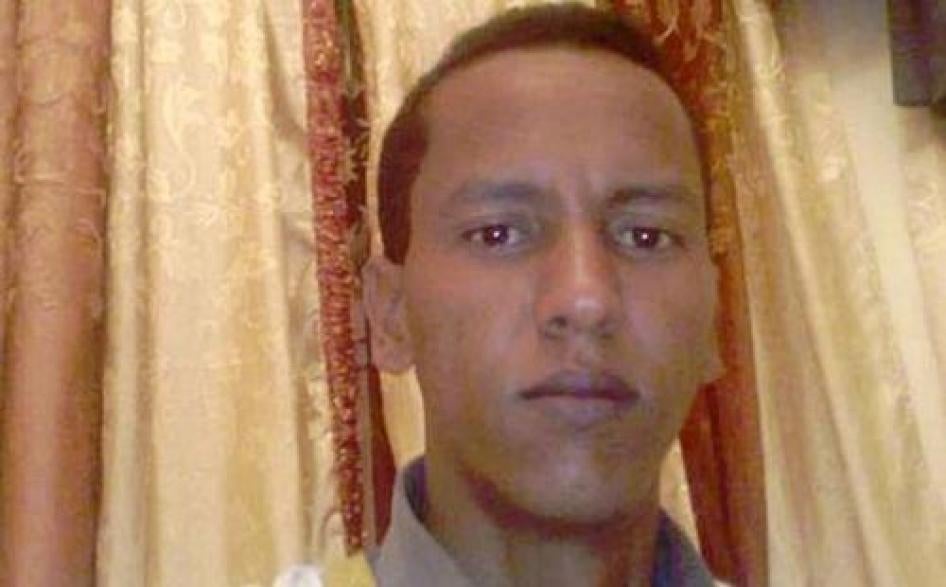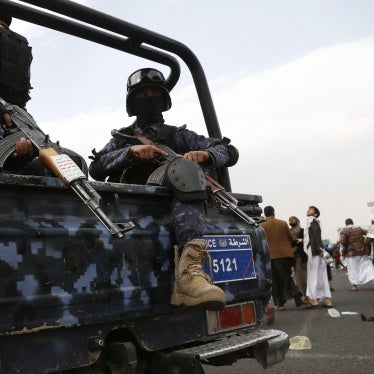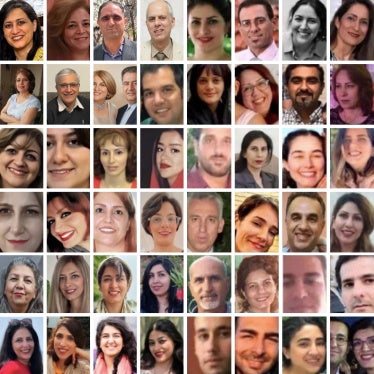By Candy Ofime, Fatimata M’Baye and Mohamed Ould Moine
On June 22, Mauritanians will elect a new President. This political transition offers the current head of state an unprecedented opportunity to close the case of blogger Mohamed Ould Cheikh Mkhaïtir, detained for the last five years for comments deemed blasphemous. The blogger's continued detention worries his supporters and illustrates the increasing deterioration of civil liberties in Mauritania. The fate of Mkhaitir, detained since November 2017 without any legal basis, now lies in the hands of President Mohamed Ould Abdel Aziz, the only person with the power to order his immediate release.
The outgoing president, who came to power through a coup d'état in 2008 and has since been elected twice, will not be running for reelection in June 2019. Throughout his last term, Mohamed Ould Abdel Aziz welcomed the firmness of the Mauritanian authorities with respect to Mkhaïtir's case and argued that his release would threaten his security as well as the country's stability.
The period between the final results of the election and the inauguration of the new head of state could offer a decisive moment to order the blogger's release.
Aycha Mkhaïtir has only one request for President Aziz: the immediate release of her brother, whose health is deteriorating day by day. Aycha's message is clear: "We are simply asking for Mohamed's rights to be respected, we’re running out of time!"
In December 2013, Mkhaïtir had published an online article denouncing the religious justification for maintaining the caste system in Mauritania, which some Mauritanians tried to legitimize by citing examples from the life of the Prophet Mohammed – wrongly so, according to the blogger. Mkhaïtir himself belongs to the marginalized blacksmiths' caste. A few days after expressing his views, the blogger was arrested and charged with apostasy.
In December 2014, after one year of pre-trial detention, Mkhaïtir was sentenced to death for apostasy and insulting the Prophet Mohammed. Since then, his lawyers have been fighting a legal battle that seemed almost lost in advance. In 2016, judges first reduced the charges from apostasy (zendagha) to non-belief (ridda), while maintaining the death sentence. His lawyers then decided to file an appeal. During the Supreme Court ruling on the case in January 2017, thousands of protestors stormed the hearing, demanding the blogger's execution. The Supreme Court then quashed the ruling of the court of appeal and sent the case back to a new panel of judges.
In November 2017, the court of appeal of Nouadhibou eventually reduced Mkhaïtir's sentence to two years' imprisonment and a fine, for non-belief. His lawyers believed that at the end of the hearing, Mkhaïtir would be released and taken to a place of safety, under the eyes of international observers.
Instead, Mkhaïtir's family and representatives were left without news of the young man for several months. Meanwhile, the Mauritanian government adopted a new law on apostasy with the mandatory imposition of the death penalty in cases of "blasphemous comments" and "sacrilegious acts," with no possibility of commuting the sentence if the defendant repented. Although the death penalty still features in Mauritanian legislation, it has not been applied since the late 1990s.
Mkhaïtir is being held arbitrarily and without justification in a secret location since November 9, 2017. His lawyers have been denied permission to visit him ever since the date when he should have been released. His brothers and sisters fear that his health could deteriorate further. "Mohammed is not allowed to leave the room in which he is locked up, he can only interact with the guards who bring him food and who wear hoods over their faces," said Aycha, who points out that her brother has a mobile phone with which he communicates with his family. There are serious concerns for the blogger’s psychological as well as physical health. Mkhaïtir is apparently suffering from glaucoma which could leave him blind if the Mauritanian authorities continue to block him from accessing the medical treatment his condition requires.
Since the start of the prosecution, the Mauritanian authorities have been playing the "security" card and suggesting to their Western allies that a release could provoke an uprising by religious radicals. According to the Justice Minister's latest comments on the case, Mkhaïtir is currentlyin administrative detention. His supporters have said that the way Mkhaïtir has been demonized is weighing on his family, whose very name, because of its notoriety, has led to their stigmatization.
Mkhaïtir's family and supporters agree that President Aziz has politicized the case and should now order the blogger's release before the inauguration of his successor. With a more stable security situation than its neighbors in the Sahel, Mauritania has no excuse for violating human rights principles. Its international partners should break the silence on this case and persuade the Mauritania to release Mkhaïtir before the end of his term.









